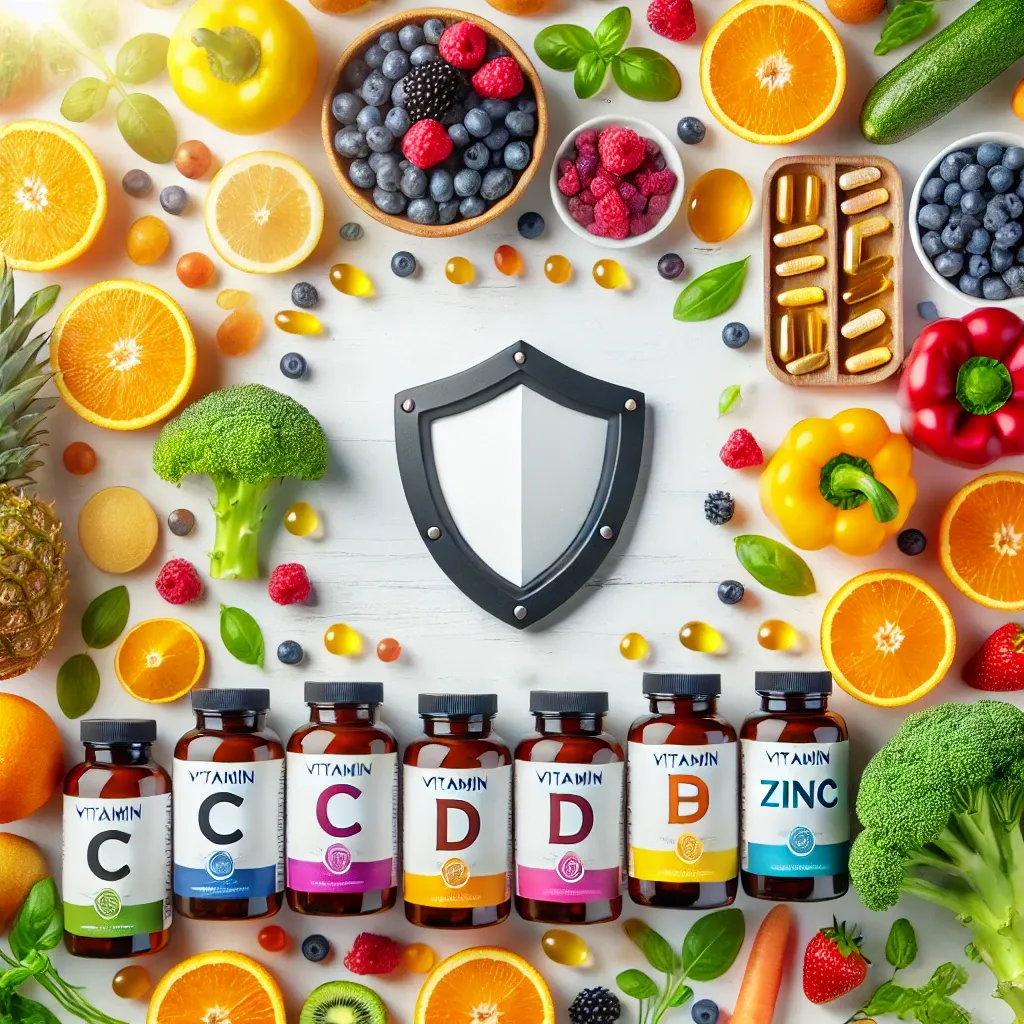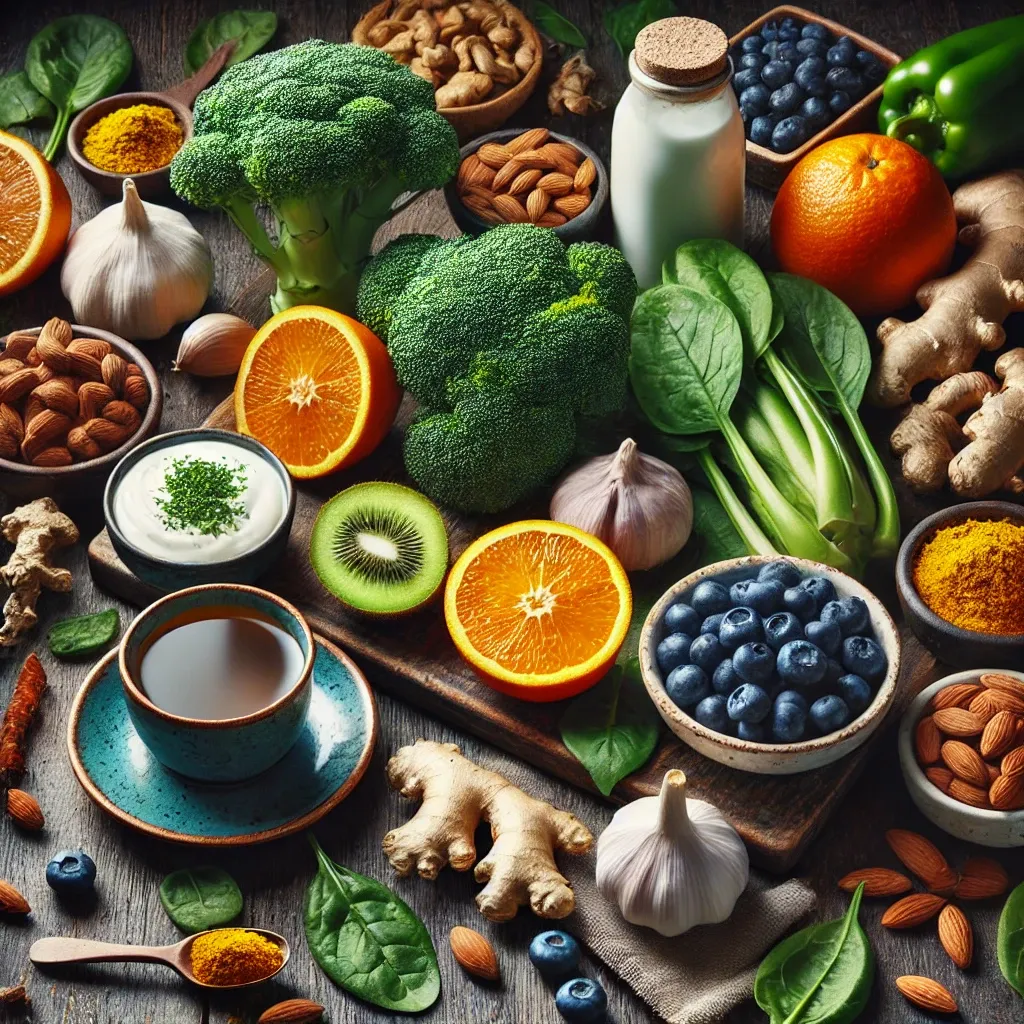📋 Table of Contents
Our immune system acts like a shield that protects us from external pathogens, viruses, and bacteria. One of the key elements that help strengthen this shield is none other than **vitamins**! 🎯
Especially in 2025, when unpredictable weather and the threat of infectious diseases are on the rise, health management focused on boosting immunity is more important than ever. Let’s dive deeper into the immune-boosting vitamins that play a central role! 💪
🔬 The Relationship Between Vitamins and Immunity
Vitamins are essential nutrients that help maintain the body’s biochemical functions. In the immune system, they play various roles such as producing antibodies, enhancing white blood cell function, and preventing cellular damage. 🧬
When vitamins are deficient, fatigue sets in easily and the body becomes more vulnerable to infections. For example, a lack of vitamin C delays wound healing, and a deficiency in vitamin D increases the frequency of colds or the flu. 😷
But that doesn’t mean more is always better. It’s important to maintain an appropriate intake. Personally, I believe that “consistently managing vitamins through a balanced diet is the smartest approach.”
Each vitamin works differently in the body and varies in absorption and storage. Water-soluble vitamins are excreted in urine when consumed excessively, while fat-soluble vitamins can accumulate in the body and cause toxicity. 🎯
🧪 Summary of Immune Functions by Vitamin Type
| Vitamin | Main Function | Deficiency Symptoms | Immune Function |
|---|---|---|---|
| Vitamin C | Antioxidant, Collagen Synthesis | Colds, Delayed Wound Healing | Activates White Blood Cells |
| Vitamin D | Calcium Absorption, Immune Regulation | Weak Bones, Frequent Infections | Regulates Immune Cell Receptors |
| Vitamin E | Cell Protection, Antioxidant | Dry Skin, Weakened Immunity | Suppresses Free Radicals |
Each vitamin plays a unique role in the immune system. When consumed in balance, they strengthen your resistance to infections and help with faster recovery. 💚
🍊 Roles and Effects of Vitamin C
Vitamin C is a well-known water-soluble vitamin that acts as an antioxidant in the body. It protects cells from damage and plays a vital role in fighting infections.
Our bodies cannot produce vitamin C on their own, so we must obtain it through foods or supplements. It’s abundant in fruits and vegetables like tangerines, oranges, strawberries, broccoli, and bell peppers. 🍓
From an immune perspective, vitamin C enhances white blood cell functions, speeds up wound healing, and helps immune cells respond effectively to viral invasions. It’s especially known for preventing and recovering from colds. 😷
Also, stress can lower vitamin C levels in the body, making it an especially important nutrient for modern people. Consistent intake is key.
🍋 List of Vitamin C-Rich Foods
| Food | Content per 100g (mg) | Benefits |
|---|---|---|
| Kiwi | 92.7mg | Boosts immunity, Skin care |
| Red Bell Pepper | 190mg | Antioxidant, Reduces inflammation |
| Broccoli | 89.2mg | Detoxifying, Immune support |
Vitamin C is sensitive to air and heat, so to preserve its nutrients, it’s best to eat it raw or lightly blanched. 🍽️
🌞 Importance and Functions of Vitamin D
Vitamin D is a fat-soluble vitamin uniquely synthesized in the skin when exposed to sunlight. That’s why it’s often called the sunshine vitamin! 🌤️
Vitamin D is not only beneficial for bone health but also plays a vital role in activating immune cells. When bacteria or viruses invade the body, vitamin D helps immune cells respond appropriately.
As of 2025, with the increase in remote work and indoor lifestyles, vitamin D deficiency is becoming more common. This can raise the risk of colds, flu, and even autoimmune diseases. 🧫
Therefore, it’s important to naturally synthesize vitamin D through sunlight exposure and supplement it with foods like oily fish, egg yolks, and fortified milk. Supplements can also be a good option if needed!
🐟 Comparison of Foods Containing Vitamin D
| Food | Content per 100g (IU) | Features |
|---|---|---|
| Salmon | 526 IU | Rich in Omega-3 and high in protein |
| Egg Yolk | 37 IU | Can be consumed with B vitamins |
| Fortified Milk | 100 IU | A daily glass covers the basics |
The best time to get sunlight is between 10 a.m. and 2 p.m. Just 15–20 minutes of exposure to arms and legs is enough for sufficient vitamin D production! 🌞
🌿 Vitamin E and Enhancing Immune Function
Vitamin E is well-known as a powerful antioxidant. It protects the body’s cells from oxidative stress and helps maintain stable immune function by preventing the aging of immune cells. 🛡️
Vitamin E plays a significant role especially when immunity drops due to aging or stress. It removes accumulated toxins from the body and strengthens cell membranes, helping block bacterial invasions.
As a fat-soluble vitamin, vitamin E can be stored in the body, but excessive intake should be avoided. It’s recommended to consume it through natural foods like sunflower seeds, almonds, and spinach rather than supplements. 🌰
Also, when taken together with vitamin C, its antioxidant effects are enhanced. That’s why it’s best to consume various vitamins in a balanced way!
🥜 Summary of Foods Containing Vitamin E
| Food | Content per 100g (mg) | Benefits |
|---|---|---|
| Sunflower Seeds | 35.17mg | Antioxidant, Skin protection |
| Almonds | 25.63mg | Cardiovascular protection, Boosts immunity |
| Spinach (cooked) | 3.53mg | Anti-inflammatory, Prevents anemia |
Vitamin E pairs well with omega-3 fatty acids. That’s why a varied intake of nuts, fish, and green leafy vegetables works best! 🥗
🥦 List of Vitamin-Rich Foods
There’s a wide variety of foods that can help you supplement vitamins. By paying a little more attention to your daily diet, you can easily meet the recommended daily intake. Especially raw vegetables, fruits, nuts, and seafood are rich in vitamins. 🍎
Vitamin C is mostly found in fresh fruits, vitamin D in fish and sunlight, and vitamin E in nuts and seeds. Choosing unprocessed, natural foods is the best way to go.
During seasonal transitions or winter, when immunity tends to drop, you should pay even more attention to vitamin intake. These vitamins build the basic strength needed to fight off viruses like colds and the flu.
Creating a list of vitamin-rich foods for a balanced diet can make daily meal preparation much easier! Take a look at the table below 😊
🍽️ Immune-Boosting Vitamin Food Chart
| Vitamin | Main Foods | How to Consume |
|---|---|---|
| C | Tangerine, Broccoli, Bell Pepper | Raw, Lightly blanched |
| D | Salmon, Fortified Milk, Sunlight | Sun exposure, Grilled, Steamed |
| E | Almonds, Spinach, Sunflower Seeds | As nuts, Add to salads |
💡 Tips and Precautions for Vitamin Intake
No matter how good vitamins are, if not taken properly, their effects may be limited. That’s why **when**, **how**, and **how much** you take matters a lot. 💡
Water-soluble vitamins (like C and B-complex) are better absorbed after meals rather than on an empty stomach. Fat-soluble vitamins (D, E, A, K) should be taken with foods that contain fat to improve absorption. 🥑
Too much of a good thing can be harmful—even with vitamin supplements. Excessive intake may burden the liver or hinder the absorption of other nutrients. Especially, too much vitamin D can cause hypercalcemia. 🚫
Taking vitamins for just a day or two won’t dramatically boost your immunity. What matters most is steady management through regular meals, sleep, and exercise!
📆 Summary of Timing & Combinations for Vitamin Intake
| Vitamin | When to Take | Recommended Combinations |
|---|---|---|
| C | After meals | Zinc, Vitamin E |
| D | After consuming fat | Omega-3 |
| E | During meals | Vitamin C, Selenium |
Think of vitamins as your lifelong friends. Rather than binge-taking, it’s better to consistently take small amounts every day. 🌿
❓ FAQ
Q1. Can I take all vitamins at once?
A1. Most can be taken together, but some combinations may interfere with absorption. Vitamin D and calcium, or C and zinc, are good to take together.
Q2. When is the best time to take vitamin C?
A2. Taking it after meals improves absorption and reduces stomach discomfort. Splitting doses throughout the day is also effective.
Q3. Is sunlight alone enough for vitamin D?
A3. About 15–20 minutes of sunlight per day is usually sufficient. However, during winter or for people who stay indoors often, supplements or food sources may be needed.
Q4. Does vitamin E help with anti-aging?
A4. Yes! Its strong antioxidant properties protect cells and greatly contribute to maintaining healthy skin.
Q5. Which vitamins are good if I catch colds often?
A5. Vitamins C and D are especially effective for preventing and recovering from colds. They help activate immune cells and reduce inflammation.
Q6. How long should I keep taking vitamins?
A6. Unless there’s a specific reason to stop, it’s recommended to take them continuously throughout your life—adjusting as needed based on your condition.
Q7. Can pregnant women take vitamins C, D, and E?
A7. Yes! They are beneficial for health within the recommended doses. However, for high-dose supplements, it’s best to consult with a doctor.
Q8. How do I choose the right vitamin supplements?
A8. It depends on your health, diet, and lifestyle. Always check the ingredient amount, absorption rate, and the brand’s reliability before choosing.

